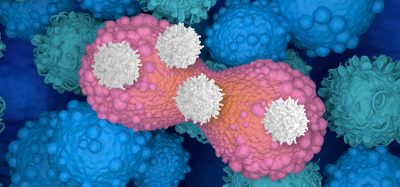Alliance to create atlas of human genetic variants launched
Posted: 6 April 2021 | Victoria Rees (Drug Target Review) | No comments yet
The Atlas of Variant Effects Alliance will develop a map of human genetic variants to advance the understanding and treatment of disease.


A new international consortium of geneticists, biologists, clinicians, mathematicians and other scientists named the Atlas of Variant Effects (AVE) Alliance has been created to compile a comprehensive atlas of genetic variants to advance the understanding, diagnosis and treatment of disease.
“This Herculean undertaking is unprecedented,” said Dr Matthew Hurles, a geneticist at the Wellcome Sanger Institute, UK. “Indeed, the scientific community has an increasingly comprehensive catalogue of functional DNA elements in the human genome, but that catalogue remains incomplete. We have collectively characterised the functional impact of less than one percent of genetic variation in the one to two percent of our DNA.”
Hurles and Dr Doug Fowler, a member of the Brotman Baty Institute for Precision Medicine (BBI) and professor of Genome Sciences at the University of Washington’s UW Medicine, US, want to increase those percentages significantly.
They are founding members of the AVE Alliance and co-authors of a white paper outlining what they say may be the most ambitious task over the past 30 years.
AVE, along with BBI and the Center for the Multiplexed Assessment of Phenotype, is co-hosting an event that will bring together global experts performing leading edge research in precision medicine, functional genomics, protein science and variant interpretation and prediction.
The launch of the AVE alliance and the consortium’s effort to create the atlas of human genome variants are key issues to be covered at the meeting. The atlas will also examine technology development, data generation, data analysis, data co-ordination and sharing and clinical and biological translation.
“We have never known so much about naturally occurring variation in the human genome and now is the time to seize the opportunity to understand what that genetic variation means for human health,” said Professor Anna Gloyn, at the Stanford University School of Medicine and an AVE Executive Committee member.
The initial efforts of members of the AVE Alliance will focus on quantifying the functional impact of single nucleotide variants at the genomic loci, primarily human protein-coding genes, that offer the greatest and most immediate clinical utility.
“The ultimate goal is to develop a systematic, extensive understanding of the functional impact of variants in human, model organism and pathogen genomes,” Fowler said. “However, the field of variant effect mapping is already yielding major impacts. We believe and expect that a co-ordinated and phased approach with others globally could be transformative. The first major, ‘real world’ impact of the atlas of variant effects is expected to be improved genetic diagnosis and precision medicine.”
Related topics
Disease Research, Genetic Analysis, Genomics, Molecular Targets
Related organisations
Atlas of Variant Effects (AVE) Alliance, Brotman Baty Institute for Precision Medicine (BBI), Stanford University School of Medicine, Washington University, Wellcome Sanger Institute
Related people
Dr Doug Fowler, Dr Matthew Hurles, Professor Anna Gloyn







